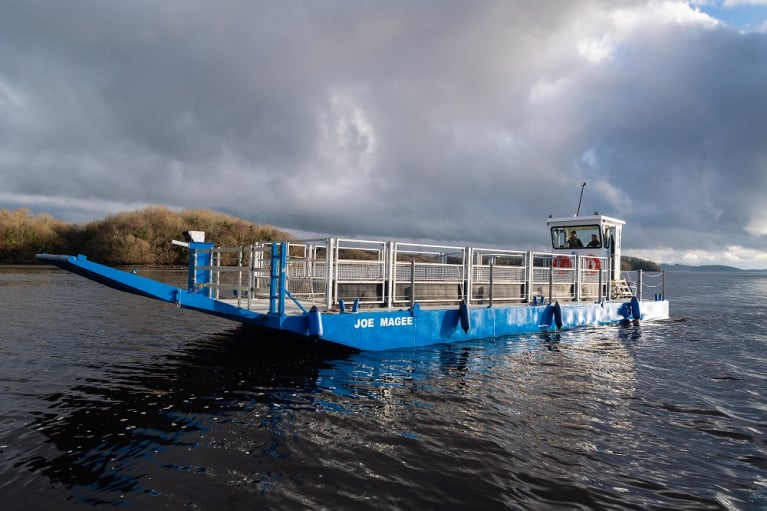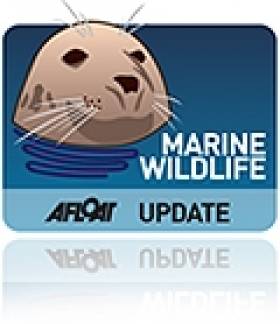Displaying items by tag: RSPB
Launch of New Lake Boat in Battle to Save Northern Ireland's Birds
The launch of a new boat is a boost in the efforts to protect the habitats of endangered birds in County Fermanagh, reports BBC News NI.
The Royal Society for the Protection of Birds (RSPB) will use it to transport livestock to graze on islands on Lower Lough Erne, creating a suitable environment for breeding wader birds.
The vessel has been named in tribute to former RSPB warden Joe Magee.
Having joined the society in 1971, he was one of the first people to notice the alarming decline in curlews.
'You could hear them all over the place'
Mr Magee said when he started work as an RSPB warden in Fermanagh, the sounds of many endangered bird species were common.
"If you went outside the door at that time you could hear curlews, and lapwings, all over the place, and even corncrakes were very common then."
Corncrakes have now disappeared completely from Fermanagh.
Since 1987 curlew numbers have fallen by 89% across Northern Ireland.
Last year there were 39 pairs of curlews on the RSPB managed islands in Fermanagh, 10% of the population on the island of Ireland.
One reason for the decline is a change in farming practices.
For further reading click here.
Warning Over Oil Drill Threat to Rathlin Island Wildlife
Wildlife on Rathlin Island could be under threat if oil-drilling licences are awarded in the area, the Belfast Telegraph reports.
The north Antrim coast has been earmarked as a site for potential oil exploration in the latest round of British Government licensing, despite the area being designated as both a Special Protection Area and a Special Area of Conservation.
Environmental experts have warned of the devastating effect that oil drilling could have on marine wildlife on Rathlin Island and the nearby coastline.
"We've seen off the coast of Aberdeenshire that no matter how careful the drilling, there is always the risk of a spill," said Claire Ferry of the RSPB.
"In this case the spill happened far away from any vulnerable wildlife colonies, but just imagine the impact if that oil was washing onto a globally important seabird colony."
The Belfast Telegraph has more on the story HERE.





























































